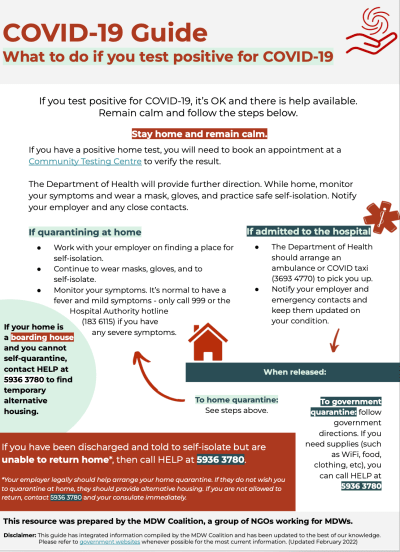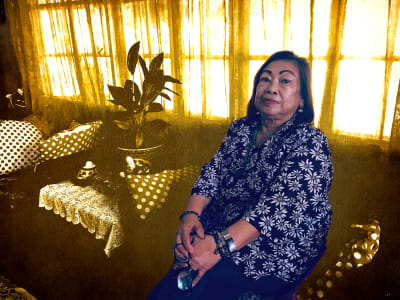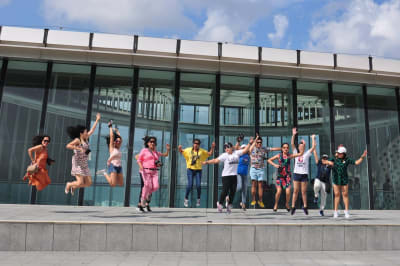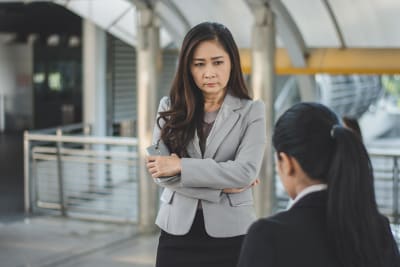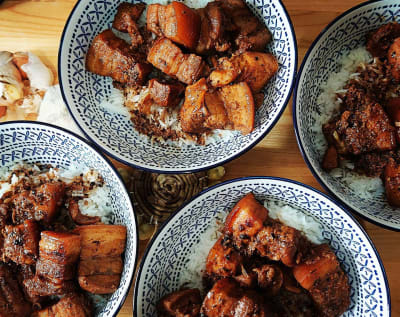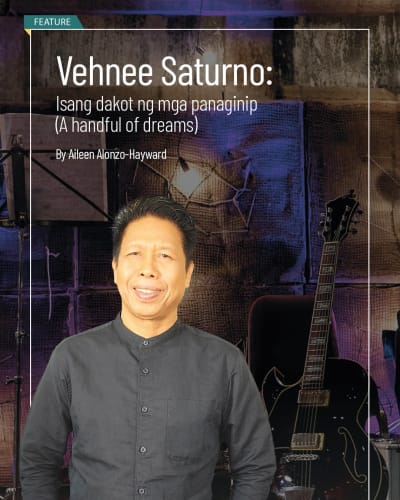PCG MESSAGE TO PANGYAO READERS
On behalf of the Consulate General of the Philippines in Hong Kong, I would like to extend our congratulations to the Pangyao Magazine for its first edition. Pangyao’s social media platform is a collaborative eff ort of our fellow Filipinos who love to express themselves through writing and sharing their stories. Through this platform, Filipinos (and other migrant workers) can connect with each other and they can also obtain an informative story by joining here.
In these challenging times, we hope that the dedication to humanitarian service will manifest in Pangyao’s future editions which address a broad range of emerging needs and open possibilities for the betterment of our fellowmen. I wish the success of this magazine, its founders Aileen Alonzo-Hayward and Martin Turner, and all the contributors.
Mabuhay!
....................................................
LOOK AT ALL the space we have now!”, beams Consulate General Raly Tejada, as he and Vice Consul Robert ‘Bob’ Quintin walk the Pangyao team through the Consulate main floor following our tour of their offi ces. Anyone visiting the Philippine Consulate General (PCG) office a couple of years prior - be it to renew passports, make Social Security payments, seek legal assistance or use one of the many other services - will allude to the fact that the bustling crowd was part of the experience. Filipinos being social by nature, it was not uncommon to gain a new friend or two during that time, whilst you waited patiently in line together for service!
That was before the pandemic disrupted our daily lives in every way, shape and form. Almost overnight, unprecedented changes took effect; the introduction of social distancing, restrictions on visitor numbers and reduced working hours for government staff , all coincided to wreak havoc on daily operations. At a time when consulate services had arguably become more important than ever, it was clear that maintaining service levels would require forward thinking and drastic changes.
The PCG acted quickly. The health and safety of everyone visiting or working for the Consulate became top priority, with a firm focus on risk mitigation and streamlining. A project to implement the new Online Passport Application System - an initiative beset by delays prior to the pandemic - was accelerated, launching in May 2020, a matter of weeks into the COVID-19 crisis. The benefits of this change were two-fold; not only did it minimise person-to-person contact (thus lowering the risk of transmission), but by moving one of the Consulate’s primary services online, it also made room for other consular services to be accessed more easily, dramatically decreasing overcrowding in the process.
....................................................
The Pandemic Effect
The effect of the COVID-19 pandemic on our lives has been profound, upending our daily routines and forcing us to adapt. Depending on personal situation, some of these changes may have even been welcome; working from home for example has meant less time commuting, resulting in more time to spend with family and friends.
The reality for many of Hong Kong’s 370,000+ migrant domestic workers however has been quite diff erent; the by-product of these changing routines has often resulted in longer working hours (there are no defi ned working hours under HK domestic worker contracts), with some employers discouraging or even preventing workers from leaving their homes on their days off (despite still asking them to go out for errands during the week). While this is against the law (Hong Kong law states that the employers must provide 24 hours of uninterrupted rest), many domestic workers find themselves trapped in similar cycles, with concern for their rights often falling on deaf ears.
In early May this year, the Hong Kong government also announced a requirement for all domestic workers to be fully vaccinated before renewing their contracts. It caused an uproar amongst both domestic workers and employers, not only for the seemingly discriminatory nature of the requirement, but also the practicalities; aggressive and unrealistic timelines were set for the programme, despite the fact that the infrastructure of vaccination centres were unable to support them. Many domestic workers found themselves in a position where even if they wanted to, they were unable to book a slot for their vaccination prior to the stated deadlines.
Thankfully, Consul General Tejada was one of those who intervened, arguing that domestic workers should not be singled out amongst foreign workers, and urging the government to reconsider. A few days later, the Hong Kong government scrapped their compulsory vaccination plan.
On top of the daily work stresses that migrant workers are faced with, there is also the added pressure of worrying about their families back home; in many cases, accelerating infection rates, ineffi cient healthcare systems and low vaccination take-up in their home countries remain an ongoing cause for concern. Homesickness has become increasingly commonplace, with the vast majority of Filipinos unable to fl y back to The Philippines, due to stringent travel restrictions and quarantine requirements.
According to the PCG, a direct result of these factors and challenges is that, concerningly, anxiety and depression amongst Filipinos is also on the rise. We briefl y spoke with Lucit Villanueva, Social Welfare Attaché for the Department of Social Welfare and Development (DSWD), who encourages any kababayans dealing with mental health issues or emotional struggles to reach out to their department, whose door is always open for those in need of support or assistance. Likewise, the PCG are currently working on maximising their referral services to the Hong Kong Social Welfare Department, and strengthening ties with NGOs who provide support for Filipino nationals, such as multicultural/multilingual counselling and psychological assessments.
....................................................
PCG: THE ROAD AHEAD
The PCG Hong Kong Facebook page has more than 220,000 followers, leading the way as the most-followed Philippine Consular social media page in the world. Vice Consul Bob spoke of their plan - in cooperation with the Overseas Workers Welfare Administration (OWWA) and DSWD - to use this sizeable online presence to bring information and assistance to the Filipino community through a variety of means, including posting of infographics and videos, and conducting online lectures and seminars. Philippine festivals and celebrations are observed via online webinars hosted by the Consulate and its associated agencies.
As for future plans, the PCG are continually reviewing their processes, procedures and increasing personnel requirements, not only to keep on top of the ever-changing COVID-19 landscape, but also to meet the growing demand for domestic workers in Hong Kong. According to studies, due to an ageing population, the number of domestic workers in Hong Kong is expected to almost double to 600,000 over the next 30 years; hence, learning to adapt to the increasing number of Filipinos in the city through increasingly innovative and technology-driven solutions, is key to the long term success of the Philippine Consulate General in Hong Kong. But wherever the uncertain road ahead may take us, Consul General Tejada and his team remain fully committed to steering us in the right direction.




9dde49c3be6bac6166d59fb7abf39532)
